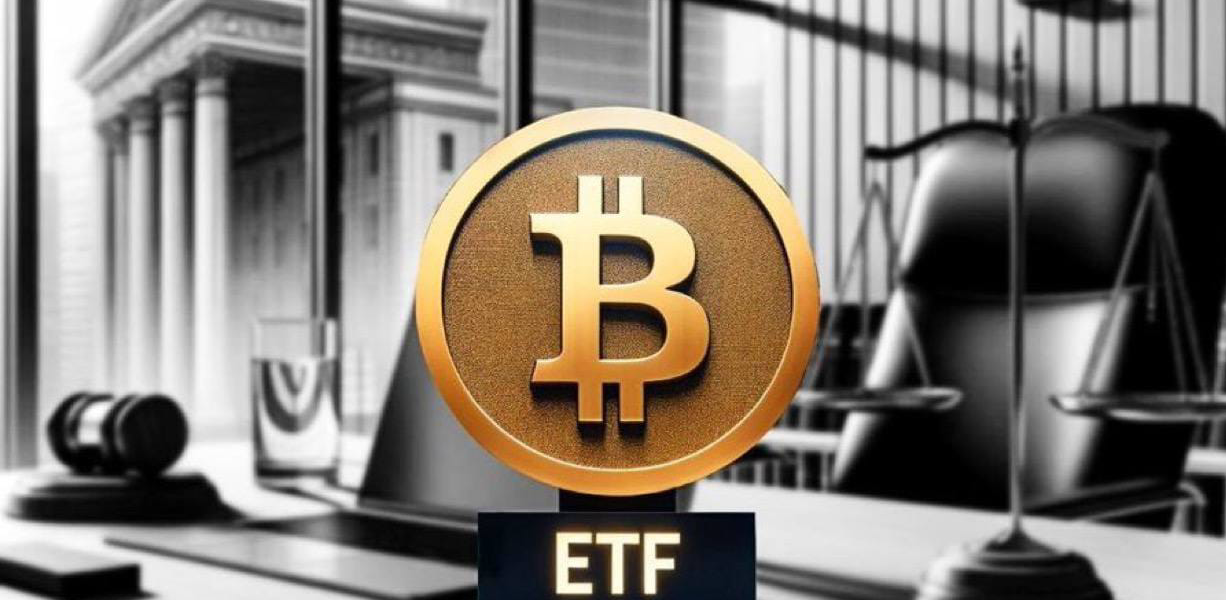The cryptocurrency investment landscape continues to evolve rapidly, with bitcoin ETF approval news today dominating headlines across financial markets. As institutional adoption accelerates and regulatory frameworks become clearer, investors are closely monitoring the Securities and Exchange Commission’s decisions regarding various cryptocurrency exchange-traded funds. The latest bitcoin ETF approval news today reveals significant developments that could reshape how both retail and institutional investors access digital assets through traditional investment vehicles.
Recent announcements from the SEC show mixed signals, with some ETF applications facing delays while existing Bitcoin ETFs continue to attract substantial inflows. Understanding these developments is crucial for anyone considering cryptocurrency investments or tracking the evolving regulatory environment. This comprehensive analysis examines the current state of Bitcoin ETF approvals, market implications, and what investors can expect in the coming months.
Current State of Bitcoin ETF Approvals in August 2025
Major SEC Decisions and Regulatory Updates
The Securities and Exchange Commission has been particularly active in August 2025 regarding cryptocurrency ETF applications. The SEC has pushed back several high-profile ETF decisions, including Truth Social’s Bitcoin and Ethereum ETF applications, with new decision dates extending into October 2025. This development represents a significant shift in the regulatory timeline that many investors had been anticipating.
The regulatory environment surrounding Bitcoin ETFs has evolved considerably since the landmark approval of spot Bitcoin ETFs in January 2024. The first 10 spot Bitcoin ETFs launched on January 11, 2024, following a successful lawsuit by ETF issuer Grayscale, marking a watershed moment for cryptocurrency investment accessibility.
Current market conditions show strong institutional interest despite regulatory uncertainties. SEC-approved spot Bitcoin ETFs have attracted $29.4 billion in inflows by August 2025, demonstrating robust institutional adoption. This substantial capital influx validates the market demand for regulated cryptocurrency investment products.
Impact on Bitcoin Price and Market Sentiment
The bitcoin ETF approval news today has created significant ripple effects throughout the cryptocurrency market. Market participants are closely watching how regulatory decisions influence Bitcoin’s price trajectory and overall market sentiment. Professional traders and institutional investors use ETF approval announcements as key indicators for portfolio positioning and risk management strategies.
Bitcoin’s price movements often correlate with ETF-related news, creating opportunities and challenges for different types of investors. The relationship between regulatory clarity and market confidence has become increasingly apparent as more traditional financial institutions explore cryptocurrency exposure through ETF vehicles.
Bitcoin ETF Approval News Today: What Investors Need to Know

Recent Regulatory Developments and Their Significance
The landscape of cryptocurrency ETFs extends far beyond Bitcoin alone. As of August 2025, the SEC is reviewing over 75 ETF applications tied to various cryptocurrencies, including new filings for Polkadot and Chainlink. This extensive review process demonstrates the growing institutional interest in diversified cryptocurrency exposure through traditional investment vehicles.
Understanding the approval process helps investors make informed decisions about their cryptocurrency allocations. The SEC’s approach to cryptocurrency ETFs has evolved from initial skepticism to a more systematic evaluation framework, considering factors such as market manipulation risks, custody solutions, and investor protection mechanisms.
Leading Bitcoin ETF Providers and Performance Metrics
Several major financial institutions have successfully launched Bitcoin ETFs, creating a competitive landscape for cryptocurrency investment products. BlackRock, Grayscale, and VanEck have emerged as leading providers, with their ETFs benefiting from options approval that has boosted institutional liquidity and hedging capabilities. These developments have made Bitcoin more accessible to traditional investors who prefer regulated investment vehicles.
The success of these ETFs has validated Bitcoin’s growing acceptance as a legitimate asset class within traditional finance. Performance metrics show consistent inflows and growing institutional participation, suggesting that Bitcoin ETFs have found product-market fit among sophisticated investors seeking cryptocurrency exposure.
Performance analysis reveals that Bitcoin ETFs have generally tracked the underlying asset closely while providing the convenience and regulatory protections that traditional investors expect. This alignment has been crucial for building institutional confidence and encouraging broader adoption.
Future Outlook for Cryptocurrency ETF Approvals
Predicted Timeline for Additional Approvals
Market analysts maintain optimistic projections for future cryptocurrency ETF approvals despite recent delays. Recent analysis suggests that approximately a dozen mainstream cryptocurrencies meet the SEC’s criteria, with approval chances exceeding 85% by late 2025. This positive outlook reflects the maturing regulatory framework and growing institutional demand for diversified cryptocurrency investment products.
The timing of future approvals remains a critical uncertainty for market participants. The primary uncertainty now centers on the timing of SEC approvals, with expectations that decisions will accelerate in the latter half of 2025. This timeline provides investors with a framework for planning their cryptocurrency allocation strategies.
Regulatory clarity continues to improve as the SEC develops more sophisticated evaluation criteria for cryptocurrency ETFs. This evolution suggests that future approval processes may become more streamlined as regulators gain experience with these investment products.
Market Projections and Price Predictions
Long-term market projections for Bitcoin remain bullish, particularly in the context of continued ETF adoption. Some financial models project Bitcoin reaching $125,000 to $131,000 by year-end 2025, supported by continued ETF inflows and favorable macroeconomic conditions. These projections reflect the potential impact of sustained institutional adoption through ETF vehicles. The relationship between ETF approvals and Bitcoin’s price trajectory has become increasingly important for market forecasting. As more institutional capital flows into Bitcoin through regulated investment products, the cryptocurrency’s price dynamics may become more correlated with traditional financial markets while potentially reducing overall volatility. Economic factors beyond cryptocurrency-specific developments also influence these projections. Federal Reserve policy decisions, institutional adoption rates, and global economic conditions all contribute to the complex dynamics affecting Bitcoin’s future price potential.
Investment Strategies for Bitcoin ETF Exposure
Choosing the Right Bitcoin ETF for Your Portfolio
Selecting an appropriate Bitcoin ETF requires careful consideration of multiple factors including expense ratios, trading volumes, and fund management quality. Different ETF providers offer varying fee structures and operational approaches that can significantly impact long-term investment returns. Investors should evaluate factors such as tracking accuracy, liquidity provisions, and institutional backing when choosing between available Bitcoin ETF options. The competitive landscape among providers has generally benefited investors through lower fees and improved service quality. Risk management considerations are particularly important when incorporating Bitcoin ETFs into traditional investment portfolios. The cryptocurrency’s volatility characteristics require careful position sizing and regular rebalancing to maintain desired risk profiles.
Portfolio Allocation Strategies and Risk Management
Professional investment advisors typically recommend limiting cryptocurrency exposure to a small percentage of overall portfolio value, often suggesting allocations between 1% and 5% for most investors. Bitcoin ETFs make it easier to implement and maintain these allocations within existing brokerage accounts and retirement plans. Diversification benefits may arise from Bitcoin’s historically low correlation with traditional asset classes, though this relationship has shown signs of increasing correlation during periods of market stress. Understanding these dynamics helps investors make informed decisions about cryptocurrency allocations within their broader investment strategies. Regular rebalancing becomes essential when holding volatile assets like Bitcoin ETFs. Systematic approaches to maintaining target allocations can help investors capture the potential benefits of cryptocurrency exposure while managing downside risks.
Regulatory Environment and Compliance Considerations
SEC Guidelines and Investor Protections
The regulatory framework surrounding Bitcoin ETFs continues to evolve as regulators balance innovation with investor protection. Current SEC guidelines emphasize transparency, proper custody arrangements, and adequate risk disclosures to protect retail investors from potential cryptocurrency-related risks. Compliance requirements for Bitcoin ETF providers include robust operational controls, detailed reporting obligations, and specific safeguards against market manipulation. These requirements help ensure that cryptocurrency ETFs meet the same standards as other regulated investment products. Investor education remains a priority for regulators as cryptocurrency ETFs become more widely available. Clear disclosure requirements help investors understand the unique risks and characteristics of cryptocurrency investments before making allocation decisions.
Global Regulatory Trends and International Perspectives
International regulatory approaches to cryptocurrency ETFs vary significantly, with some jurisdictions adopting more permissive frameworks while others maintain stricter controls. These differences create opportunities for regulatory arbitrage while highlighting the importance of coordinated international regulatory development.
European and Canadian cryptocurrency ETF markets have provided valuable precedents for U.S. regulatory decision-making. Lessons learned from these international experiences have informed SEC policy development and helped establish best practices for cryptocurrency ETF operations.
The trend toward global regulatory harmonization in cryptocurrency markets may accelerate as more jurisdictions develop comprehensive frameworks for digital asset investment products. This convergence could reduce regulatory uncertainty and facilitate broader institutional adoption of cryptocurrency ETFs.
Market Impact Analysis and Industry Response

Institutional Adoption Patterns and Trends
Institutional adoption of Bitcoin ETFs has exceeded many initial projections, with pension funds, endowments, and corporate treasuries beginning to incorporate cryptocurrency exposure through these regulated investment vehicles. This adoption pattern suggests growing confidence in Bitcoin’s role as a portfolio diversification tool.
The accessibility provided by Bitcoin ETFs has lowered barriers to cryptocurrency investment for institutions that face regulatory or operational constraints when holding cryptocurrencies directly. This enhanced accessibility has contributed to the substantial inflows observed in existing Bitcoin ETF products.
Professional investment managers increasingly view Bitcoin ETFs as an essential tool for implementing cryptocurrency allocation strategies within traditional portfolio frameworks. This professional acceptance has been crucial for driving sustained institutional demand.
Effects on Traditional Financial Markets
Bitcoin ETF approvals have created new linkages between cryptocurrency markets and traditional financial systems. These connections have implications for market stability, price discovery mechanisms, and the broader integration of digital assets within existing financial infrastructure.
The correlation patterns between Bitcoin ETFs and traditional asset classes continue to evolve as these products mature and attract different types of investors. Understanding these relationships helps portfolio managers make informed decisions about cryptocurrency allocations and risk management strategies.
Market microstructure effects from Bitcoin ETF trading include improved price discovery, enhanced liquidity during traditional market hours, and new arbitrage opportunities between ETF shares and underlying Bitcoin holdings. These developments contribute to overall market efficiency and stability.
Technology and Infrastructure Developments
Custody Solutions and Security Measures
The infrastructure supporting Bitcoin ETFs has evolved significantly to meet institutional security and operational requirements. Leading custody providers have developed sophisticated solutions for securing cryptocurrency holdings while meeting regulatory compliance standards. Multi-signature security protocols, cold storage systems, and comprehensive insurance coverage provide multiple layers of protection for Bitcoin ETF assets. These security measures help address institutional concerns about cryptocurrency storage and operational risks. Regular security audits and compliance reviews ensure that Bitcoin ETF infrastructure meets evolving industry standards and regulatory expectations. This ongoing attention to security helps maintain investor confidence in these investment products.
Blockchain Integration and Settlement Processes
The settlement and clearing processes for Bitcoin ETFs leverage both traditional financial infrastructure and blockchain technology to provide efficient and secure transaction processing. This hybrid approach combines the benefits of established financial systems with cryptocurrency innovation. Real-time settlement capabilities and 24/7 market access represent significant advantages of cryptocurrency-based investment products compared to traditional assets. These operational improvements may influence the development of other financial products and market infrastructure. Integration with existing broker-dealer systems allows investors to access Bitcoin ETFs through familiar platforms and interfaces. This seamless integration has been crucial for driving adoption among traditional investors who prefer established investment processes.
Conclusion
The bitcoin ETF approval news today reflects a dynamic regulatory environment that continues to shape cryptocurrency investment opportunities. While recent delays in some ETF applications may disappoint short-term speculators, the overall trajectory toward broader cryptocurrency ETF availability remains positive. The success of existing Bitcoin ETFs, with $29.4 billion in accumulated inflows, demonstrates strong institutional demand for regulated cryptocurrency investment products.
Investors considering Bitcoin ETF exposure should focus on long-term trends rather than short-term regulatory fluctuations. The evolving regulatory framework, improving institutional infrastructure, and growing market acceptance suggest that cryptocurrency ETFs will play an increasingly important role in portfolio construction and investment strategy implementation.



